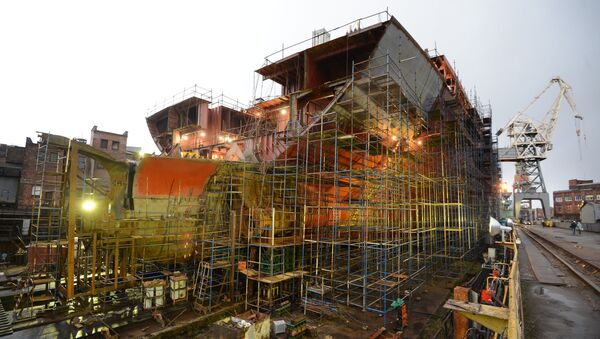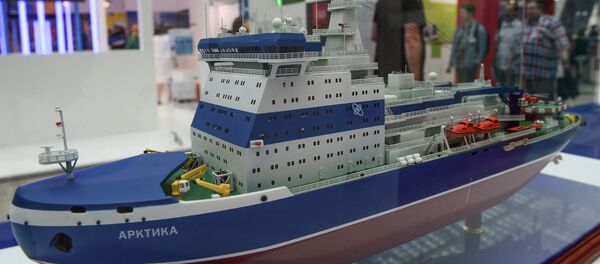MOSCOW (Sputnik) — The production of fuel for Russia's Project 22220 nuclear-powered icebreaker dubbed "Arktika" is planned to start this year, the TVEL fuel company, which is part of the state-owned Rosatom nuclear energy corporation, said Monday.
"Production of fuel for the new icebreaker's RITM-200 nuclear-power reactors with a 4.5 TWh service life — 2016," the company said in printed materials provided to participants of the VIII International Forum ATOMEXPO 2016.
The fuel will be produced at a TVEL factory in the town of Elektrostal in the Moscow Region, according to the company.
Earlier in May, the director general of Russia's nuclear icebreaker fleet operator Rosatomflot said that Arktika will be launched from the Baltic Shipyard in the summer of 2016 ahead of its late 2017 planned launch.
In 2014, the Baltic Shipyard signed a contract worth 84.4 billion rubles ($1.2 billion) with Rosatom to build two Project 22220 icebreakers by 2020. The ships will be commissioned in December 2019 and December 2020 respectively.





